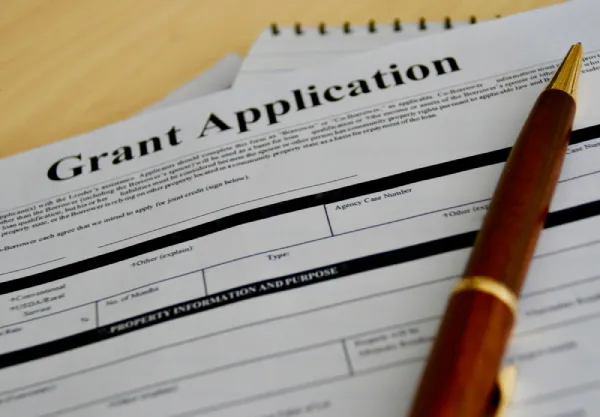Business grants are a great way to give your business the boost it needs to grow or innovate. They can also help you launch new projects. Grants are a great funding option because they don’t have to be repaid, unlike loans. The application process may seem daunting if you do not know where to begin. This guide helps you to navigate the grant application process with confidence. It breaks it down into manageable steps.
Searching for Grant Opportunities
To secure a grant for your business, you must first identify opportunities that are aligned with your goals and needs. Explore government databases such as Grants.gov, which list federal funding opportunities for different types of businesses and industries. Many state and local government sites offer regional grants to help local economic development.
Private foundations and corporations may offer grants for businesses in certain sectors. Small business development centers, chambers, and industry associations can be a great source of information on funding. Research carefully to find grants that are tailored for your business, whether it’s women-owned, minority-owned, or rural.
Criteria for Eligibility
Be sure to carefully read the eligibility criteria for each grant before submitting an application. Among the most common criteria are business size, income limits, geographical location, industry type, and years of operation. Some grants are specifically targeted at startups, while others require businesses to be established and have a proven track record.
Consider how you can use the funds. Some grants support equipment purchases, while others fund research and development initiatives, hiring initiatives, or expansion projects. Be sure that your intended use of the funds is in line with the grant purpose. One of the fastest and easiest ways to be disqualified is to not meet eligibility requirements. Create a checklist before you proceed to ensure that all criteria are met.
Prepare Your Application
Documentation and preparation are essential for a successful grant application. Gather important business documents such as tax returns, financial reports, business licenses, and proof of registration. A detailed business plan will be required that includes your company’s goals, market analysis, and growth projections.
Create a detailed budget showing how you intend to spend the grant money. When possible, provide accurate estimates of costs based on real quotes. Prepare bios that highlight relevant experience and qualifications. Many applications require information on your management team.
How to Write a Strong Proposal
Your grant proposal must tell a compelling, clear story about your company and why it is deserving of funding. Start by writing a concise executive summary that captures your request’s essence in just a few sentences. Clarify the problem that your business solves and how a grant will help achieve your goals.
Support your claims with concrete data and examples. Market research on demand for your product or service is a good way to show that you need money for expansion. When relevant, include testimonials from clients or partners. Avoid jargon and use clear, simple language to avoid confusing reviewers unfamiliar with your industry.
Review and Submission
Check your application thoroughly before submitting it to ensure that all the information is correct and complete. Verify that all documents required are present and formatted correctly according to grant guidelines. Many applications are rejected because of missing information or formatting requirements.
Someone else can review your application. You may find errors that you overlooked or areas in which your explanations could be made clearer. To avoid technical problems or missing documents, submit your application before the deadline.
Post-Submission Follow-Up
Stay involved in the application process after you submit it. Some grant programs will allow you to submit additional information or clarifications if asked. React promptly to any communication sent by the grant administrators.
Don’t get discouraged if your application is rejected. The competition for many grants is fierce, so rejection does not reflect your business. When possible, ask for feedback to improve your future applications. Keep a detailed record of all your materials to adapt them for future grant opportunities.
Take the Next Step
To apply for a business grant, you need patience, persistence, and attention to detail. The process may be lengthy, but the non-repayable funds that can result from it make it worth the effort for many businesses. Begin by finding a few grant opportunities that match your needs. Then, begin collecting the required documentation. Don’t get discouraged if you don’t succeed on your first try. Grant writing is an art that gets better with practice. Every application you submit teaches valuable lessons that will help you with the next opportunity.
FAQs
1. How long is the typical grant application process?
The timeframe varies greatly depending on the program. Federal grants can take up to several months between application and awarding, whereas some private grants have a shorter cycle. Check the program guidelines to determine specific deadlines.
2. Am I able to apply for more than one grant at once?
You can apply for several grants at once. You should disclose any other applications that are pending when necessary. Furthermore, don’t “double dip” and request funding from different sources for the same expense.
3. How do I know if I have received a grant but not used all of the money?
Grant agreements usually specify how unutilized funds should be treated. Some grant agreements require that you return any unused funds, while others permit you to reallocate the money within categories approved. Check your grant agreement to see if there are any specific requirements.
4. Should I hire a professional to write my grant?
Professional grant writers are not necessary, but they can be useful, especially when dealing with large or complex applications. Many small businesses are able to write their own grant applications with careful planning and attention.




